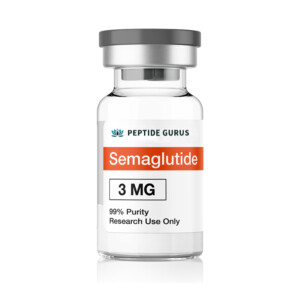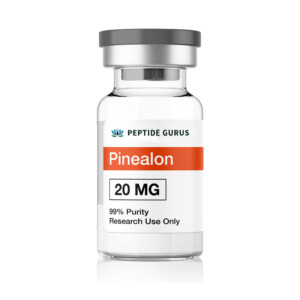Sermorelin vs. IGF-1: Similarities and differences is a topic of significant interest in the realm of growth hormone therapies. Both compounds are used to enhance growth and combat the effects of aging, but they function in distinct ways. Understanding these differences is crucial for making informed decisions about their use.
Sermorelin is a synthetic peptide that stimulates the pituitary gland to produce more growth hormone. It is often prescribed to individuals with growth hormone deficiencies. By encouraging the body to produce its own growth hormone, Sermorelin offers a more natural approach compared to direct hormone injections.
IGF-1, or Insulin-like Growth Factor 1, is a hormone that mimics the effects of insulin and plays a key role in growth and development. Unlike Sermorelin, IGF-1 is directly involved in promoting cell growth and development. It is often used in therapies aimed at muscle growth and recovery.
One of the primary similarities between Sermorelin and IGF-1 is their role in promoting growth. Both compounds are used to enhance physical development, particularly in individuals with deficiencies. However, the mechanisms by which they achieve this are different.

Sermorelin vs. IGF-1: Similarities and differences also extend to their side effects. Sermorelin is generally considered to have fewer side effects because it stimulates the body’s natural hormone production. Common side effects include injection site reactions and mild headaches.
IGF-1, on the other hand, can have more pronounced side effects, particularly at higher doses. These can include joint pain, swelling, and potential insulin resistance. Therefore, it is crucial to use IGF-1 under medical supervision to mitigate these risks.
Another key difference between Sermorelin and IGF-1 is their administration. Sermorelin is typically administered through subcutaneous injections, often on a daily basis. This method ensures a steady stimulation of the pituitary gland.
IGF-1 is also administered via injections, but the dosage and frequency can vary depending on the specific treatment goals. Some protocols may require daily injections, while others might involve less frequent dosing.
The cost of treatment can also be a significant factor when considering Sermorelin vs. IGF-1: Similarities and differences. Sermorelin is generally less expensive, making it a more accessible option for many patients. IGF-1 treatments tend to be more costly due to the complexity of the hormone and its production.
Efficacy is another important aspect to consider. Sermorelin’s effectiveness is largely dependent on the individual’s ability to produce growth hormone. In contrast, IGF-1 provides a more direct approach to enhancing growth and development, which can be beneficial for those who do not respond well to Sermorelin.
Both Sermorelin and IGF-1 have been studied extensively, and research continues to explore their potential benefits and drawbacks. Clinical trials have shown that both compounds can be effective in treating growth deficiencies, but the choice between them should be based on individual needs and medical advice.
Sermorelin vs. IGF-1: Similarities and differences also include their legal status and availability. Sermorelin is widely available and can be prescribed by doctors for growth hormone deficiencies. IGF-1, however, is more tightly regulated and may not be as readily accessible.

Patient experience is another critical factor. Many patients report positive outcomes with Sermorelin, including increased energy levels and improved overall well-being. IGF-1 users often experience significant muscle growth and recovery, making it popular among athletes and bodybuilders.
In terms of long-term use, Sermorelin is generally considered safer due to its natural stimulation of growth hormone production. Long-term IGF-1 use requires careful monitoring to avoid potential complications such as insulin resistance and joint issues.
Sermorelin vs. IGF-1: Similarities and differences also touch on the issue of customization. Sermorelin therapy can be tailored to the individual’s specific needs, adjusting the dosage to optimize results. IGF-1 treatments may also be customized, but the process is more complex and requires careful medical oversight.
Both Sermorelin and IGF-1 play a role in anti-aging therapies. Sermorelin’s ability to stimulate natural growth hormone production makes it a popular choice for those looking to combat the effects of aging. IGF-1’s direct impact on cell growth also offers anti-aging benefits, particularly in muscle maintenance and recovery.
The impact on metabolism is another point of comparison. Sermorelin can help improve metabolic function by increasing growth hormone levels. IGF-1 also influences metabolism, but its effects are more directly related to muscle growth and insulin sensitivity.
Sermorelin vs. IGF-1: Similarities and differences in terms of accessibility and ease of use are also worth noting. Sermorelin’s daily injection routine can be more manageable for some patients compared to the variable dosing schedules of IGF-1.
When considering Sermorelin vs. IGF-1, it’s essential to consult with a healthcare provider to determine the best course of action. Both therapies have their unique benefits and potential drawbacks, and professional guidance is crucial to achieving the desired outcomes.
In conclusion, Sermorelin vs. IGF-1: Similarities and differences highlight the importance of personalized medicine. Understanding the distinct characteristics of these therapies allows for more informed decisions and better health outcomes. Whether for growth deficiencies, anti-aging, or muscle recovery, the choice between Sermorelin and IGF-1 should be made with careful consideration and medical advice.
All products on this site are for Research, Development use only. Products are Not for Human consumption of any kind.
The statements made within this website have not been evaluated by the US Food and Drug Administration or HEALTH CANADA. The statements and the products of this company are not intended to diagnose, treat, cure or prevent any disease.
PeptideGurus is a chemical supplier. PeptideGurus is not a compounding pharmacy or chemical compounding facility as defined under 503A of the Federal Food, Drug, and Cosmetic act. Peptide Sciences is not an outsourcing facility as defined under 503B of the Federal Food, Drug, and Cosmetic act.
PeptideGurus is a leading supplier of American-made research peptides, offering top-quality products at competitive prices. With a focus on excellence and customer service, they ensure a secure and convenient ordering process with global shipping.
CONTACT